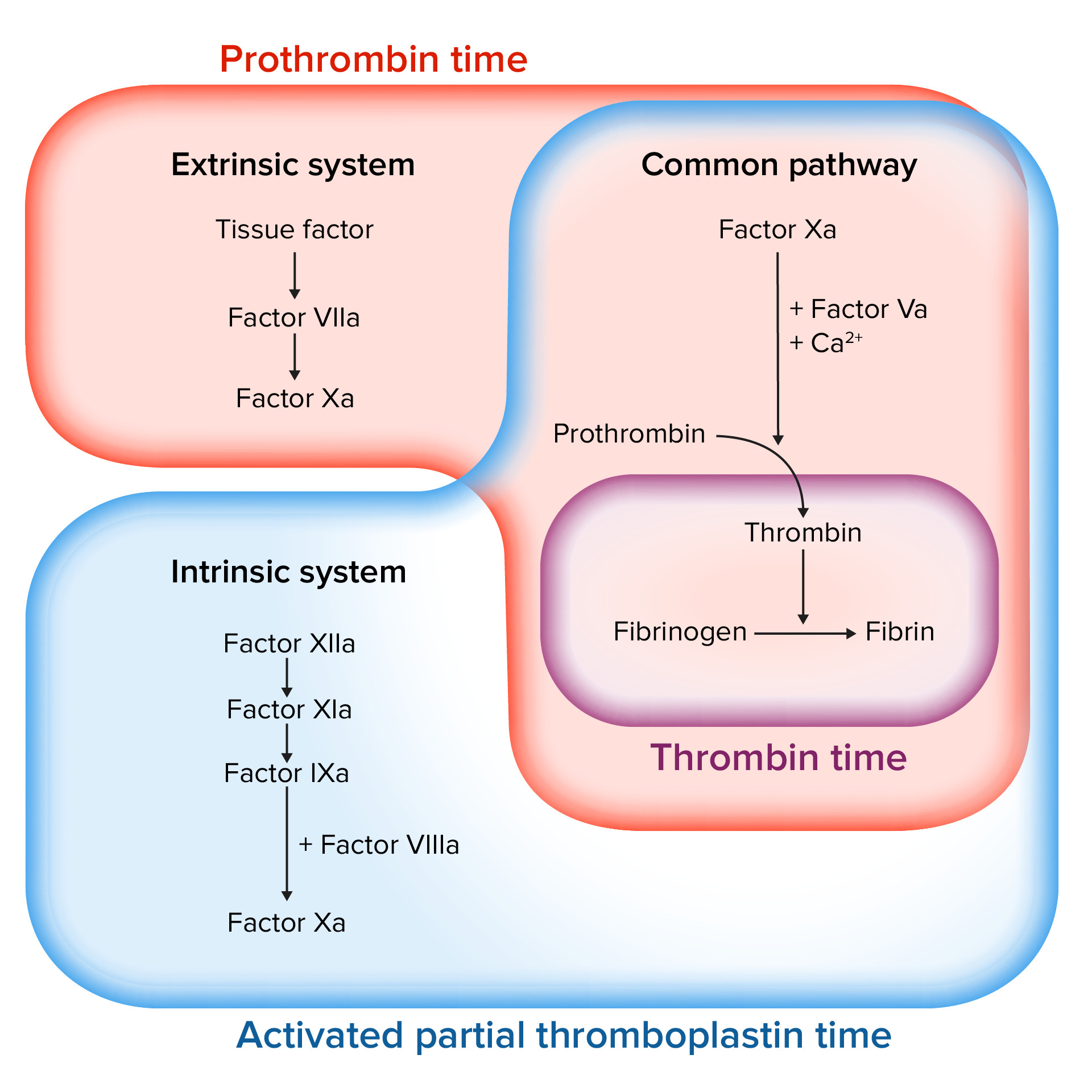Playlist
Show Playlist
Hide Playlist
Functional Platelet Abnormalities
-
Slides BleedingDisorders FunctionalPlateletAbnormalities.pdf
-
Download Lecture Overview
00:01 Hello. 00:02 Let's take a look at bleeding disorders but this is from a functional point of view. 00:05 Think about that for a second as you move forward with our differentials. 00:09 But functional, you don't necessarily have to have a decrease in platelet count, do you? Functional, I want you think of the normal process of hemostasis that we've discussed. 00:23 When there's endothelial injury, you had expression of von Willebrand factor which is then bound to glycoprotein Ib. 00:32 If there's is a deficiency of glycoprotein Ib, hereditary deficiency, this is then referred to as being Bernard-Soulier Syndrome in which we can expect there to be lack of adhesion and there's an increase in bleeding time. 00:48 That's what your focus is going to be on when dealing with Bernard-Soulier. 00:53 What if the other glycoprotein, it was called IIb/IIIa, and it was responsible for what step? Aggregation. 01:03 So here also you would find an increase in bleeding time, but the biggest difference between the two, would be the step in adhesion, would be a lose in Bernard-Soulier. 01:13 The step in aggregation, would be lose in Glanzmann's Thrombasthenia. 01:18 Aspirin we talked about where you inhibit thromboxane therefore you don't have aggregation, its a functional issue but it is an acquired type, isn't it? Not hereditary. 01:31 Other NSAIDs of course, would be reversible including let's say ibuprofen. 01:36 Other issues in terms of drugs, remember the word or letters GREL, and whenever you found the letters GREL in a drugs such as Clopidogrel, or Prasugrel, or Ticagrelor then that was an issue or it was a target of your P2Y12 receptor antagonism for ADP in which you are unable to then express glycoprotein IIb/IIIa. 02:05 So here, you prevent the step of aggregation on purpose. 02:10 Or Abciximab, that we talked about, it's going to particularly target glycoprotein IIb/IIIa, and once again you will prevent platelet aggregation. 02:20 In other words, you are purposely creating function abnormalities with these drugs, aren't you? Because you're trying to treat a patient who has platelet thrombi.
About the Lecture
The lecture Functional Platelet Abnormalities by Carlo Raj, MD is from the course Hemostasis: Basic Principles with Carlo Raj.
Included Quiz Questions
Which of the following is deficient in Bernard-Soulier syndrome?
- Glycoprotein Ib surface protein
- Factor 10
- Von Willebrand factor
- IIbIIIa surface protein
- Fibrin
Which of the following steps of hemostasis is mainly affected in Glanzmann’s thrombasthenia?
- Platelet aggregation
- Fibrinogen activation
- Platelet adhesion
- Megakaryocyte maturation
- Thrombin formation
Customer reviews
5,0 of 5 stars
| 5 Stars |
|
5 |
| 4 Stars |
|
0 |
| 3 Stars |
|
0 |
| 2 Stars |
|
0 |
| 1 Star |
|
0 |




